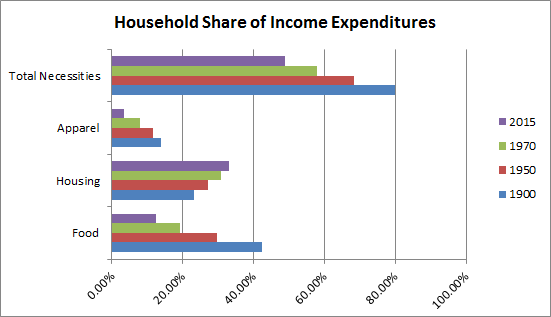By the age of 30 I was financially independent. My business was self sustaining, I enjoyed my work immensely and no one could tell me what to do. I wrote a best selling book. I wrote some great research. I spent years training for and finished a full Ironman despite having never run more than a few miles just a few years before that. I had a dreamy marriage to a woman who is way out of my league. All of my needs were taken care of. Life had transitioned into what I wanted. But as I get older I feel that the things I want are endlessly unquantifiable and so after years of feeling like I understood what was “enough” I began to increasingly fail to grasp what that meant for me.
This all multiplied when I had children. Children mess up your entire concept of “living standards” because they create so much future uncertainty. As soon as my first daughter was born I felt like I was back in the rat race. Not because I worry about what my neighbor has, but because I feel the need to take care of my kids in perpetuity. And yes, I know that’s not the goal. As Warren Buffett says, it’s better to give your kids enough to do something, but not enough to do nothing. But can you quantify that concept? Because I sure can’t.
And so I have no quantifiable measure of what is enough. What is enough for my kids in 5, 10, 20, 50 years? This is what has happened to my brain in the last few years. And yes, I embrace it. I enjoy the hustle mentality and having something to look forward to. I felt shallow and empty in many ways before kids and they energized my purpose in numerous ways. But at the same time I feel endlessly unfulfilled despite being someone who has all the needs he could ever dream for. That’s because, I am fairly certain I will never feel like I have enough because enough is a moving target that can never be pinned down.
I think this is a microcosm of what so many people are struggling with today. People in developed economies have undeniably good relative living standards. The median American is in the global 1% in terms of wealth. Global living standards have boomed as seen by collapsing global poverty rates. But something strange has happened within the developed world in the last 30 years. Life has progressed, but our needs were mostly already taken care of. That is, our incomes bought us increasingly large amounts of things like clothing, food and shelter. But our needs changed at the same time. 100+ years ago you would have been happy just to have abundant food, shelter and clothing. But our wants slowly turned into needs. Good healthcare and education were relatively rare for older generations, but today they’re necessities. And so the hamster wheel keeps spinning and we keep putting more and more needs on the wheel. Along the way we wonder why the wheel is getting harder to move despite the fact that we’re putting more and more stuff on the wheel. 1

And of course, the story totally depends on who you are. More recently, the super wealthy have benefitted more than anyone. Women have benefited relative to men. Emerging markets have benefited relative to developed economies. And so even while all ships have risen with the tide we’ve watched some boats getting bigger faster. And that’s a big part of the hamster wheel perspective. In the 1950s you had no reasonable data driven view of the other hamster wheels. But in today’s world you see everyone’s hamster wheel because they post it on social media every day. So we’re unhappy not because we’re objectively failing to meet our needs. After all, the median person lives like a king compared to someone in the year 1920. But we’re unhappy because we constantly think we’re failing to meet our wants. As Raj Raghunathan described in “If You’re So Smart, Why Aren’t You Happy?” we’re unhappy in large part because we’re not only aware of what everyone else has, but we put an unreasonable pressure on ourselves to pursue more wants.2
1 – This is most apparent in modern day parents. I am an incredibly simple man. Overly simple. If I had it my way my kids would wear the same outfits every day, they’d have the most basic stroller and gadgets, etc. But that’s not the world we live in. My daughters have hundreds of outfits. They have dozens of bottles. They have a $1,000 stroller. They have their own iPad. And on and on. The amount of basic stuff they have that makes life easier for the parents is truly absurd. We invest so much time, energy and resources into a modern day child that I think a person from 100+ years ago would have a heart attack if they were transported into the modern world. Are we better off treating our kids this way? I honestly don’t know, but that’s where we’re at.
2 – While I was reading this book I couldn’t stop thinking about my dog. Yes, I think about the happiness of dogs a lot these days. Are they happy because they’re objectively happy? Or are they happy because they have all their needs taken care of (food, water, sleep, shelter) and have little to no concept of wants?
Mr. Roche is the Founder and Chief Investment Officer of Discipline Funds.Discipline Funds is a low fee financial advisory firm with a focus on helping people be more disciplined with their finances.
He is also the author of Pragmatic Capitalism: What Every Investor Needs to Understand About Money and Finance, Understanding the Modern Monetary System and Understanding Modern Portfolio Construction.

